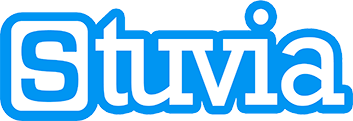They are discussed at every job interview and in every internship vacancy these days: skills. Also, everyone seems to know exactly what skills you have and what they could potentially contribute. But what exactly are these skills? No worries, in this article we will tell you more about the definition of skills, show you various skills examples and have some tips to improve your skills.
What are skills?
Skills are activities or tasks that you can do well. You can think of these as activities that you have practised more often and have developed and perfected as a result. A skill is not only about theory, but also about practice. Skills are also part of a competency. A competency consists of a skill, combined with individual knowledge and character traits.
Examples of skills
Now that you know what skills are, we have listed some examples of skills for you. You can distinguish skills into different types, namely:
- Analytical skills → skills related to your analytical ability. If you have analytical skills, you can analyse a situation, problem or research question well. Someone with these skills is solution-oriented and can distinguish between main and minor issues;
- Cognitive skills → skills related to the way you absorb and process knowledge and information. Examples are having insight or being able to concentrate. Cognitive skills are often developed as a child and are partly genetically determined
- Communication skills → skills related to how you communicate with others verbally or non-verbally, such as presenting or (active) listening. You can be verbally communicative as well as in writing: one can easily write a summary without spelling mistakes, while another knows how to pitch ideas well;
- Creative skills → skills related to the extent to which you can think up or create new things. You can think of creative thinking through brainstorming or mind-mapping and its implementation, for example. Creative skills include, for example, diverging, chance thinking, associating, observing and imagining;
- Didactic skills → skills you need to teach someone else something, in other words, to educate. You can think about inspiring, handling questions in the right way and countering resistance. Didactic skills are mainly needed as a teacher, but can also be helpful if you want to become a manager or work with children later on;
- Social skills → skills related to how you interact with other people. You can think about being involved in your surroundings, being able to work together and being friendly. People with social skills can resolve conflicts in a good way and can assess desired behaviour.
Besides these skills examples, your education or (future) job may also require specific skills such as dealing with feedback or being able to negotiate. But don't worry! These skills are of course taught to you during your studies.
Personal skills vs. Professional skills
Skills can be used at different times, namely in private or work situations. You can therefore divide skills, besides the examples above, into two categories:
- Personal skills are skills that are often linked to your qualities, such as having perseverance, empathy or patience, but also the way you (self)reflect. In the work sphere, these skills are also called soft skills and can be applied to any job;
- Professional skills are skills that focus on practice, such as being able to write, cook, program or touch type. You will then often need these skills during your internship or work and are also called hard skills.
How do I improve my skills?
Are you also getting motivated to start improving your skills right away? Or do you want to be so proficient at something that you no longer have to think about it? The tips below will help you improve your skills:
- Repetition is key → practice makes perfect, also when working on your skills. By repeating things more often, you make your brain recognise certain steps faster and that makes it easier to remember information. Useful right?!;
- Be consistent → keep spending the same amount of time each week on improving your skills. To stay consistent, it can be helpful to set a learning goal with a start and end point;
- Push your boundaries → don't be afraid to go out on a limb and go one step further each time. At the same time, do not set the difficulty level so high that it becomes unachievable, but keep challenging yourself;
- Be open to feedback → by constantly working on a skill yourself, it can sometimes be hard to see your progress. So ask for feedback from people around you to get a realistic view of where you stand.
Did you know that you can develop your skills further with the help of our website? For example, you can work on your entrepreneurial skills by starting your own summary shop or get yourself ready for your driving theory with our test module.
